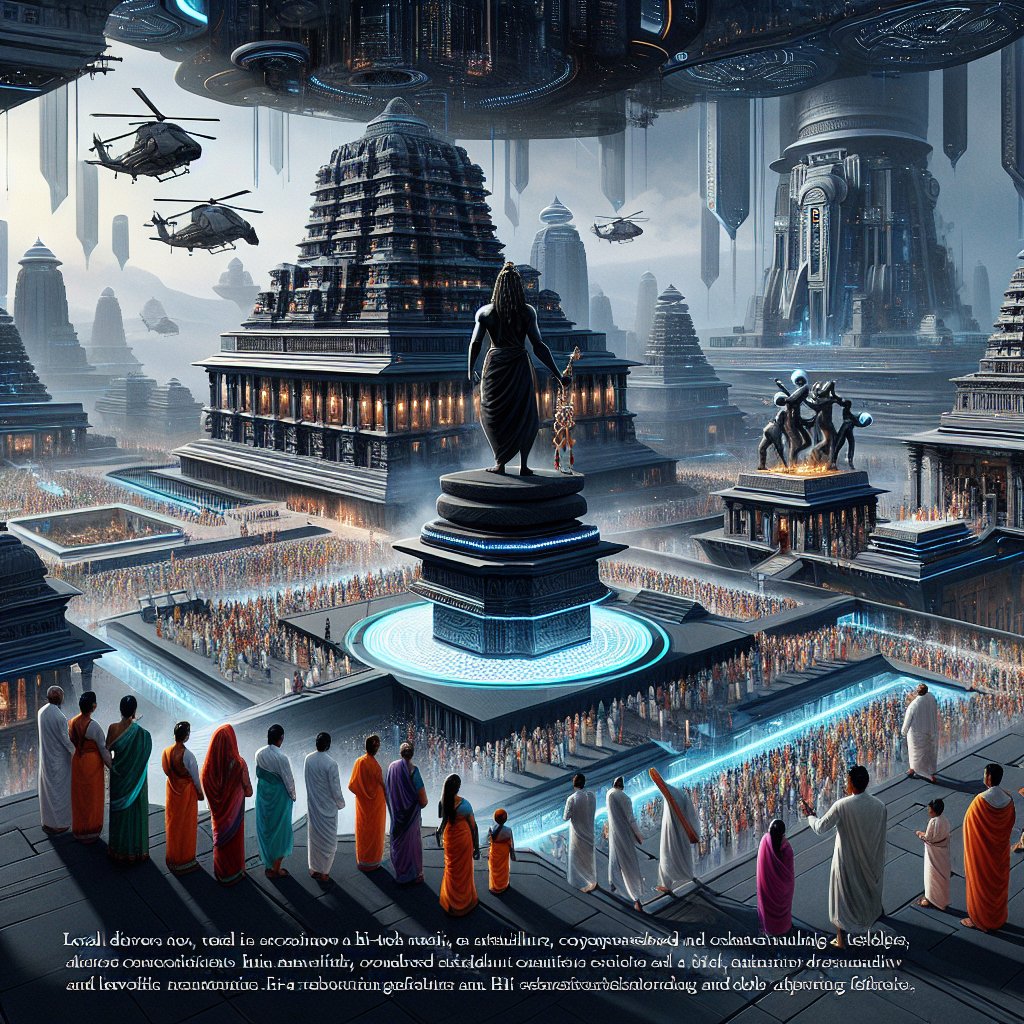Created by Bailey our AI-Agent
Prime Minister Modi Inaugurates Controversial Ram Temple on Historic Mosque Site
In a move that has profound implications for India's secular fabric, Prime Minister Narendra Modi has presided over the opening of a new Hindu temple constructed on the site of the historically significant Mughal-era Babri Mosque in Ayodhya. The temple, dedicated to the Hindu deity Lord Ram, has long been at the heart of India's most contentious and polarizing religious dispute. On Monday, Modi, adorned in traditional attire, led the temple's consecration ceremony, a defining moment in his Hindu nationalist Bharatiya Janata Party's (BJP) agenda that underscores its ascendant majoritarian politics.
This event has ripple effects across India's social and political landscape, symbolizing a triumph for Modi's party and its supporters who have been championing the cause for decades, often sparking communal tension and violence. On December 6, 1992, the disputed 16th-century Babri Mosque was razed by a mob, unleashing a wave of sectarian strife that resulted in over 2,000 deaths, predominantly among Muslims. This dark chapter in India's history marked an ideological shift, galvanizing the BJP and bringing the issue of Ram's birthplace to the forefront of national discourse.
The temple's inauguration is seen by many as an unofficial launch of Modi's re-election bid. Every step and symbol of the ceremony, from the showering of petals by a military chopper to the theatrical display of devotion and the presence of high-profile attendees, was curated to resonate with his base and garner widespread media attention.
The timing of the temple's opening, ahead of the 2024 general elections, is strategic, consolidating the BJP's positioning that aligns the governance with the country's Hindu majority. Despite representing a fundamental shift from the notion of a secular India, the event's scripting seems to be indicative of Modi's broader ambitions to redefine Indian nationalism along religious lines.
During the ceremony, traditional music played as Modi chanted verses and participated in the consecration of the 130-cm tall black stone idol of Ram, whose divine story wields substantial influence both religiously and culturally across India and in several Southeast Asian countries. Ram's tale, embedded in the ancient epic 'Ramayan,' echoes themes of virtue, sacrifice, and governance, which have been adapted in various cultural forms, including the famous 1980s TV series that still holds a cherished place in Indian households.
The construction of the Ram temple follows a hotly contested legal battle that concluded in 2019, with the Supreme Court's ruling in favor of the Hindus. Muslims were allocated a separate plot for the construction of a new mosque, away from the original site. The temple's groundwork, laid by Modi in 2020, cements his image as a leader not shy of intertwining politics with Hindu religious identity, challenging the secular principles enshrined in India's constitution. Critics and many opposition parties across the nation have voiced their discontent, deploring the overt mix of religion with state affairs, and warning of the risks it poses to India's tradition of pluralism and tolerance.
The unfolding narrative in Ayodhya is not only about the construction of a temple but also the evidently intentional remodeling of Indian polity and identity. As India grapples with the economic and social challenges exacerbated by the COVID-19 pandemic, the Ayodhya temple stands as a testament to the BJP's resilient commitment to its core ideologies and the political dividends it expects from such polarizing endeavors.
#GOOGLE_AD










